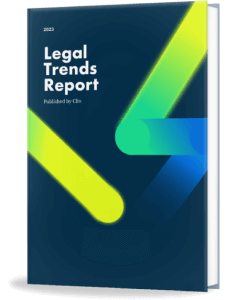Law firms are quickly embracing the power of social media marketing. If you’ve ever wondered how to use Pinterest for lawyers, you’ve come to the right place.
Pinterest might not hit the headlines like Twitter or Facebook. However, according to recent social media research, it’s the 8th most popular social media platform—ranking above others like Twitter and LinkedIn with a monthly average user base of 416 million users. Pinterest is especially popular among Millennials and Gen Z. And while some think it mainly caters to women, this is a misconception—40% of Pinterest users are men.
Pinterest is a unique channel for law firms looking to attract new clients. You can publish visually appealing content, create specific boards for each practice area/service, and link to content created across different channels.
But how can law firms maximize the marketing return on investment (ROI) from Pinterest? By reading this piece. It explains the benefits of Pinterest for law firms, outlines how firms can set up their Pinterest accounts, and explores Pinterest marketing best practices.
Benefits of Pinterest for lawyers
Every social media channel boasts its unique benefits—so, what are Pinterest’s?
First, it’s highly visual, meaning it’s easy to capture people’s attention. This also makes it fairly low-touch. While LinkedIn thought leadership content requires plenty of time and effort to get right, it’s not so difficult to source an eye-catching image for Pinterest users.
Law firms can create curated content on specific topics or “boards” on their Pinterest account. Firms can have as many boards as they want on curated topics. For example, a family law firm might have different boards for information on marriage, adoption, or guardianship. This makes it easy for law firms to optimize each element of their firm’s marketing strategy. Pinterest gives firms the ability to segment their different practice areas/specializations and target various consumer bases accordingly.
Pinterest also generates traffic for other channels through external linking. For example, imagine you’ve created a blog post about finding the right law firm that includes a checklist of dos and don’ts. You can then share this checklist on Pinterest and link out to the original article. In other words, by optimizing your law firm’s Pinterest strategy, you’re also driving traffic to your website.
Lastly, great content spreads quickly on Pinterest. If somebody pins your content on their board, others will be able to find it on their board, pin it, and so on. This creates a chain-like effect that will amplify your law firm brand.
How to create a Pinterest Business Account
Setting up a Pinterest Business account is a simple and painless process. Head to Pinterest, click Sign Up, and hit Are you a business? Get started here!. After you enter your email and create a password, you’re ready to start building out your profile.
Make sure you add a professional photo and provide a description of your law firm. Ensure that users know exactly who you are and what you do if they click onto your profile. Plus, remember to link to your website in case users want to find out more.
Law firms can also add highlights to further showcase their expertise, grouping disparate Idea Pins together into different categories.
Imagine you run a real estate law firm. In this case, you might decide to create highlights for commercial property law, residential property law, mortgage lending law, landlord/tenant disputes, and so on.
How to use Pinterest to market your Law Firm
Law firms can use Pinterest to create hyper-targeted boards, allowing them to reach the right audience at the right stages of the funnel. Make sure you name your pins/boards appropriately. In other words, think about what your potential clients might search for and replicate these search terms in your names.
For example, if you’re a real estate lawyer, you can have boards dedicated to:
- Understanding mortgages
- Things first time home buyers need to know
- How to find your dream home
- Understanding closing costs and the escrow process
- Checklist on how to find the right real estate lawyer (that links out to your own website)
Remember: Creating a Pinterest account isn’t a ‘set it and forget it’ type of activity. Law firms should regularly post content to keep their accounts updated and to ensure their content is seen. Pinterest’s algorithm prioritizes fresh pins (aka new content)—so marketing your law firm on Pinterest should be a consistent, ongoing activity.
If this seems like a lot to handle, don’t worry—there’s good news. Pinterest content is relatively easy to produce. Unlike thoroughly researched blog posts, Pinterest content can be short, snackable, and bite-sized. Fee-earners don’t need to spend time creating or fact-checking content before it goes live. Instead, firms can largely entrust non-legal staff (such as paralegals), to create and distribute content over Pinterest.
It’s worth highlighting that law firms should promote their Pinterest boards across other social media platforms for maximum impact. By sharing Pinterest boards, firms can promote a set group of practice area-specific content in one single post and package it clearly.
Final thoughts on Pinterest for Lawyers
Pinterest might slightly fall under the radar regarding law firm marketing. However, when firms have a clearly-defined strategy and dedicate themselves to publishing content regularly, Pinterest for lawyers is a valuable marketing channel. For example, it can be a fantastic way to connect (and attract) the types of clients who don’t use LinkedIn.
If you want to level up your Pinterest skills, read up on the latest best practices, consider signing up for a free/cheap Pinterest course, and ask your colleagues/peers in the law community what’s worked for them in the past. Alternatively, consider hiring a law firm social media consultant and outsourcing the process to them.
Lastly, remember not to force your firm’s brand onto Pinterest. Create content that people care about or that addresses their pain points. Don’t go in for the hard sell—provide users with valuable content, and they’ll come to you when they need legal help.


